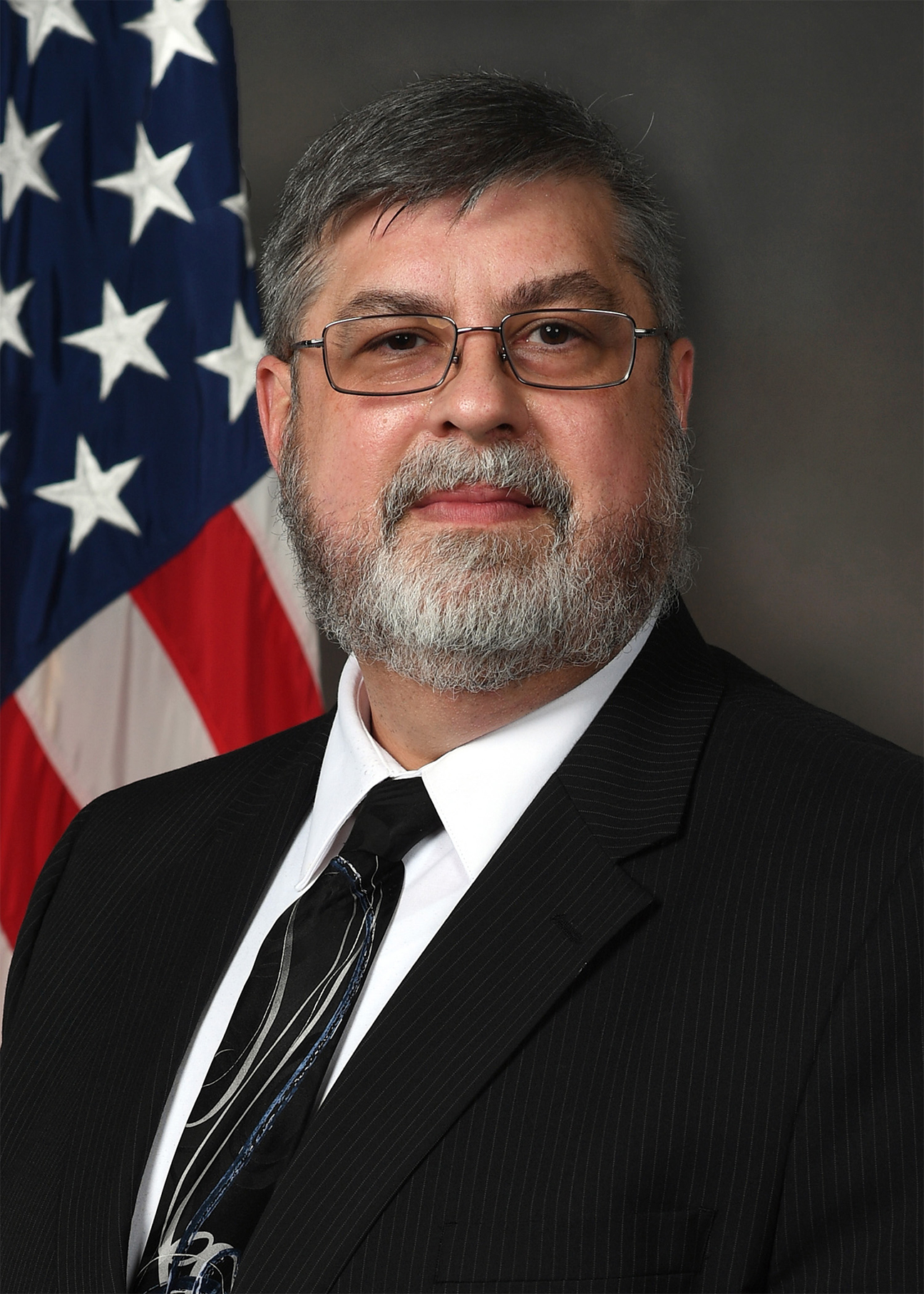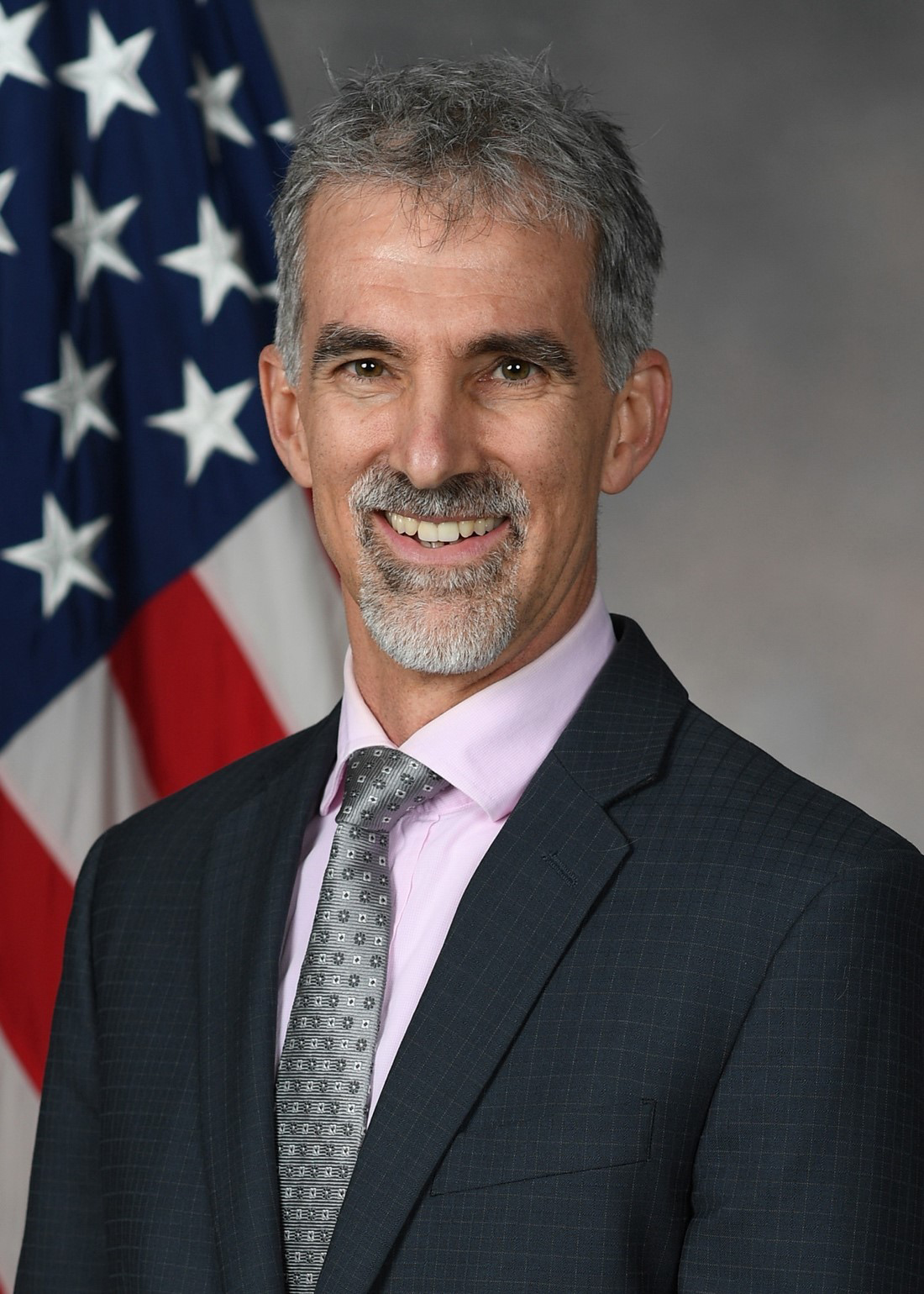2 AFRL scientists selected as AIAA Class of 2024 Fellows
WRIGHT-PATTERSON AIR FORCE BASE, Ohio (AFRL) – Drs. Charles J. Cross and Gregory W. Reich, of the Air Force Research Laboratory, or AFRL, were recognized as 2024 American Institute of Aeronautics and Astronautics, or AIAA, Fellows, in a Feb. 8, 2024, news release.
“The Class of 2024 AIAA Honorary Fellows and Fellows are among the most respected names in the aerospace profession. Congratulations to each member of this year’s class for their many accomplishments,” said Laura McGill, AIAA President. “These distinguished individuals have earned the respect and admiration of our broad science and engineering community. We are in awe of their creativity and exceptional contributions to advance the performance and capability of aerospace systems.”
AIAA confers Fellow upon individuals in recognition of their notable and valuable contributions to the arts, sciences or technology of aeronautics and astronautics. Nominees are AIAA Associate Fellows. Since the inception of this honor 2,064 persons have been elected as AIAA Fellows, according to the release.
According to AIAA’s Constitution, AIAA Fellows are “persons of distinction in aeronautics or astronautics and shall have made notable and valuable contributions to the arts, sciences, or technology thereof.”
All Fellow candidates must be an Associate Fellow of the Institute in good standing. The evaluation is based on the candidate’s technical/management contributions and accomplishments, service to AIAA and other aerospace professional societies and endorsement letters as well as several committee meetings and discussions. One Fellow for every 125 Associate Fellows is elected to an AIAA Fellow each year. The most qualified candidates were endorsed by the AIAA Honors and Awards Committee and approved by the AIAA Board of Trustees.
The class will be inducted during a May 14, 2024, AIAA Fellows Induction ceremony and dinner in Washington, D.C., and celebrated during the AIAA Awards Gala on May 15, 2024, at The John F. Kennedy Center for the Performing Arts, Washington, D.C.
Dr. Charles J. Cross

Dr. Charles J. Cross, chief, Turbine Engine Division, at AFRL’s Aerospace Systems Directorate, is recognized as a 2024 American Institute of Aeronautics and Astronautics, or AIAA Fellow. (U.S. Air Force photo)
For career technical accomplishments and exemplary leadership in advancing military gas turbine engine technology through innovative research and focused development, Dr. Charles J. Cross, chief, Turbine Engine Division, at AFRL’s Aerospace Systems Directorate, has distinguished himself as an international leader in solving pressing aircraft turbine engine structural and readiness issues.
Through demonstration of visionary leadership and problem-solving skills, he established programs and teams to address turbine engine issues and invented and transitioned several revolutionary gas turbine engine technologies for Department of Defense, or DOD, weapon systems, according to the AIAA award citation.
His contributions saved the U.S. Air Force millions of dollars and returned multiple military aircraft to flight status. He proactively drove future engine designs and led all AFRL development activities in gas turbine engine structural integrity and engine health management. Cross was the USAF technical adviser on multiple project arrangements between the DOD and the United Kingdom Ministry of Defense, or U.K. MoD. In this capacity, Cross championed programmatic developments for collaborative research in small engine technologies, integrally bladed rotor repair, high cycle fatigue mitigation, probabilistic design and advanced instrumentation.
“Being named an AIAA Fellow is a recognition that I did not think was possible,” Cross said. “I’m lucky to be in an organization that has given me many opportunities to push the state-of-the-art and address Air Force needs. I’ve worked with many, many top-notch scientists and engineers, and it’s their collaborations that have made this possible.”
Cross is a recognized leader in the formation of engineering teams and major research and development activities to address pressing engine integrity, aeromechanics and structural dynamics issues for turbine engines. He is the DOD go-to expert for root cause failure analyses of structural components in turbine engines and has served as the subject matter expert in structural dynamics for the nation’s most advanced fighters, including engine failure investigations for the F-35, F-22, F-15, F-16 B-1 and B-52, according to the citation.
As an inspirational mentor, Cross is focused on the individual development of scientists and engineers to ensure USAF’s international leadership in turbine engines. As a researcher, he established an exceptional team and was instrumental in fostering their development, actively mentoring over 30 officers and more than 80 students. Cross has held adjunct professor appointments at AFIT, Wright State University, and The Ohio State University. This dedication to mentorship continues today in his role as division chief.
“Mentoring is critical to sustaining the workforce. Using our experiences to develop others technically, professionally and organizationally must be a top priority,” said Cross. “The best thing you can do for an organization is to make yourself expendable by developing others to do what you do, so that you can take on the next great challenge.”
Dr. Gregory W. Reich

Dr. Gregory W. Reich, Principal Research Aerospace Engineer at AFRL’s Aerospace Systems Directorate, is recognized as a 2024 American Institute of Aeronautics and Astronautics, or AIAA Fellow. (U.S. Air Force photo)
For contributions to adaptive structures and morphing aircraft and for transitioning basic research results to numerous Air Force experimental unmanned aircraft and their flight tests, Dr. Gregory W. Reich, Principal Research Aerospace Engineer at AFRL’s Aerospace Systems Directorate, has distinguished himself by his contributions to the aerospace community.
Reich directed multiple cross-organizational programs demonstrating the application of multi-disciplinary analysis, design and optimization, or MADO, to aircraft conceptual and preliminary design. He led a 12-person team in the design of a quiet low-speed UAV called Great Horned Owl, or GHO that demonstrated hybrid-electric power and the consideration of airframe noise reduction as a design parameter. His direction aided in the advancement of innovative unmanned aircraft and directly led to the development of the XRQ-72B vehicle. GHO and XRQ-72 represent a first in hybrid power/performance that enables a new generation of intelligence, surveillance and reconnaissance platforms.
“I am extremely honored to be recognized by my peers in this way, and lucky to work for an organization that allows so much freedom to contribute to the mission in many different ways,” said Reich. “While this is an individual award, I certainly didn’t get here by myself. My achievements are entirely due to the success of the teams that I have worked with, and therefore I want to dedicate this award to all the outstanding collaborators and team members that I have had over the years.”
In addition, Reich led a 15-person team in the exploration of the cost/performance/capability space for Low-Cost Attritable Aircraft Technologies, or LCAAT, vehicle concepts that directly contributed to the Air Force Futures #2 capability development priority of Autonomous Collaborative Platforms. Through Reich’s direction, the team incorporated cost estimation, reduced safety factors, power systems and antenna performance in the design process, providing invaluable information to the Low-Cost Attritable Strike Demo, or XQ-58A.
Reich’s research expertise has elevated the Air Force Research Laboratory to change the way the Air Force designs, acquires and uses unmanned systems. His research efforts advancing the design process represents cutting-edge multidisciplinary vehicle design both nationally and internationally. The design process established by Reich is the world’s first hi-fidelity MADO process incorporating airframe noise, cost and antenna performance, enabling evaluation of 1,000 times more designs than the traditional process and identifies optimal designs for a number of objectives to meet vehicle design requirements.
Reich’s strategic vision and tactical execution resulted in millions of dollars of various types of funding over 16 years. Reich and his team received two patents for various portions of this work, one of which is being licensed in an ongoing Small Business Innovation Research, or SBIR award . As part of his research drive in structural topology optimization and MADO, Reich co-led a massively successful $5.1 million Commander’s Research and Development, or CRDF, project, known as MERLIN, creating a unique morphing missile head using multidisciplinary design techniques to achieve significant improvement in supersonic missile probability of kill and reduced cost per target kill, also receiving a patent for the morphing head design.
His drive led to the follow-on $15 million Seedlings for Disruptive Capabilities Program, or SDCP, known as MUTANT, and $45 million DOD ARAP program, known as SMASH, expected to demonstrate the improved range in hypersonic air breathing missiles, boost-glide missiles and high-maneuverability interceptors through surface morphing.
“We got into structural topology optimization and MADO as a means to design adaptive morphing systems,” Reich said. “Numerical optimization methods allowed us to methodically scan an extremely large space to design structure, and place actuation and sensing to achieve improved system performance. This opened doors into vehicle conceptual and preliminary design, and we were able to make significant advancements in morphing concepts, vehicle design and eventually system demonstration with flight test vehicles.”
Reich has published over 140 journals, conferences, reports and book chapters, advancing the knowledge base of the basic research community. He has authored targeted, consequential journal articles associated with the implementation of adaptive structures in aerospace systems.
About AFRL
The Air Force Research Laboratory is the primary scientific research and development center for the Department of the Air Force. AFRL plays an integral role in leading the discovery, development, and integration of affordable warfighting technologies for our air, space and cyberspace force. With a workforce of more than 12,500 across nine technology areas and 40 other operations across the globe, AFRL provides a diverse portfolio of science and technology ranging from fundamental to advanced research and technology development. For more information, visit www.afresearchlab.com.
